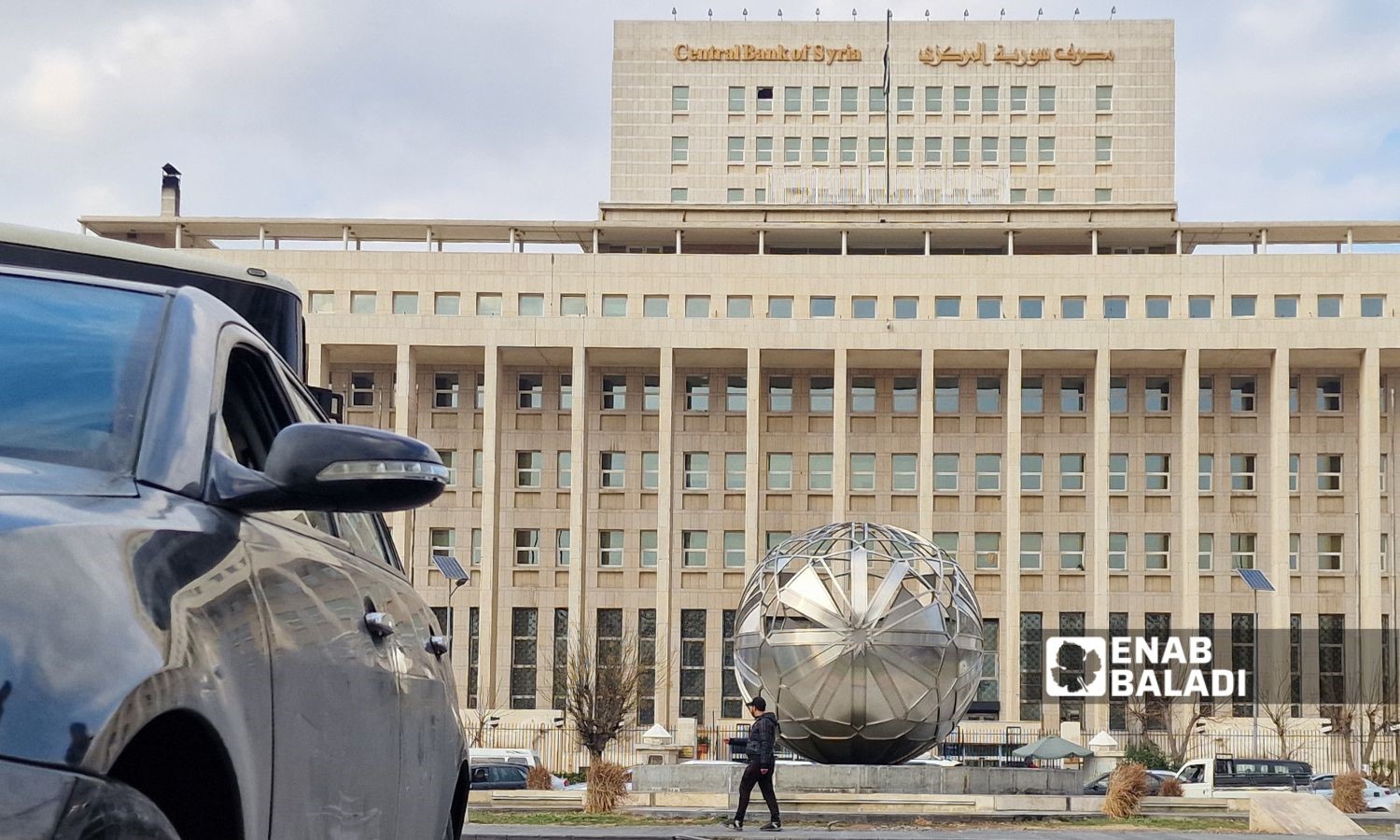The Governor of the Central Bank of Syria, Abdul Qader Hasriyeh, stated in an interview with CNBC Arabia on Friday, July 4, that Syria has entered a new phase of monetary and banking liberalization, coinciding with the gradual dismantling of the decades-long isolation imposed on its banking sector.
Hasriyeh added that the Syrian pound will no longer be pegged to the US dollar or the euro. Instead, the currency will be governed by market supply and demand under a “managed float” exchange rate policy, aimed at gradually stabilizing the national currency.
He explained that the Central Bank is working to unify the exchange rate in the coming months, with interest rates to be determined by market dynamics rather than through artificially high rates or unsustainable financial incentives.
According to UAE-based trading and market platform ADSS, a “managed float” refers to an exchange rate regime in which the national currency is allowed to fluctuate within limited margins around a reference currency such as the US dollar or euro. The exchange rate is adjusted upward or downward in response to the issuing country’s macroeconomic performance.
Under this system, the exchange rate is administratively set by the central bank and remains dependent on the volume of foreign currency reserves and the state’s ability to meet import requirements and service external debt.
Ending Syria’s International Banking Isolation
The Central Bank Governor revealed that, for the first time since 2012, Syrian banks are once again conducting both direct and indirect financial transfers. This development aligns with the country’s reaccess to the global SWIFT financial messaging network following the lifting of technical restrictions—marking the first signs of Syria’s reintegration into the international financial system after nearly five decades of isolation stemming from US and European sanctions.
Hasriyeh affirmed that the Central Bank is working to strengthen its institutional independence in accordance with international standards. He also confirmed that, based on directives from Syrian President Ahmad Al-Shara’, the government will not resort to borrowing from the International Monetary Fund (IMF) or the World Bank. Instead, Syria will rely on the easing of sanctions to restore monetary stability and facilitate remittance flows.
He noted that the Central Bank is engaged in technical consultations with the IMF to adopt international best practices in payment systems and monetary governance, as part of a comprehensive roadmap aimed at reintegrating Syria into the global economy.
The Syrian Economy Is Finally Liberalized
Hasriyeh stated that the Syrian economy now has a rare opportunity to return to full-scale activity across all sectors for the first time in 70 years. He noted that the country holds foreign currency reserves that can be gradually mobilized.
He emphasized that “the Syrian government seeks to build a productive economy based on exports, rather than depending on high interest rates or risky investment schemes.” He further pointed out that the investment climate is now conducive to delivering stable returns, signaling Syria’s transition into a phase of full economic reactivation.
To address the state’s general budget deficit, Hasriyeh said the government has adopted domestic sukuk issuances (Islamic bonds) as a primary financing mechanism. This will be complemented by steady inflows of foreign currency through both internal and external borrowing, over a period estimated between 15 and 20 years.
Commodity Prices Expected to Drop
The Central Bank Governor clarified that the upcoming tax policy will not burden citizens, as the new legislation will focus on taxing profits to stimulate production, rather than taxing consumption.
Dr. Hasriyeh added that the Ministry of Finance has succeeded in generating “decent” revenues through reduced customs duties, thereby enhancing government income without eroding consumers’ purchasing power.
He expects the prices of imported goods to decrease by approximately 25% to 30% in the near future, following the removal of import restrictions and the normalization of trade under standard commercial terms.
Central Bank Denies Deposit Crisis
Dr. Hasriyeh highlighted the activation of the Deposit Guarantee Corporation as a key measure to safeguard depositors’ funds. However, he denied the existence of any current deposit crisis, noting that most deposits are held in Syrian pounds. He explained that with sanctions being lifted, previously frozen deposits can now be unfrozen and liquidated to enhance liquidity in the financial system.
He noted that decisions implemented after May 7 have been aimed at increasing banking sector liquidity, including the activation of the Mortgage Finance Supervision Authority, which is expected to contribute to long-term liquidity sustainability. Internal borrowing, he added, will also be used as a tool to generate domestic liquidity without triggering inflationary pressures.
In a previous interview with the Financial Times on June 9, the Governor had stated that Syria’s full reconnection to the SWIFT international payment system would be completed within weeks—marking a milestone in the country’s reentry into the global economy following 14 years of conflict and sanctions that had left it financially isolated.
He stressed that the return to SWIFT will support foreign trade, lower import costs, facilitate exports, bring in much-needed foreign currency, strengthen anti-money laundering efforts, and reduce reliance on informal financial networks in cross-border commerce.
The Syrian Central Bank is working to adopt a “managed float” policy. Enab Baladi.
Hence then, the article about the syrian central bank is working to adopt a managed float policy was published today ( ) and is available on ُEnabbaladi ( Syria ) The editorial team at PressBee has edited and verified it, and it may have been modified, fully republished, or quoted. You can read and follow the updates of this news or article from its original source.
Read More Details
Finally We wish PressBee provided you with enough information of ( The Syrian Central Bank is working to adopt a “managed float” policy. )
Also on site :
- California Dreamin’: NBC Kicks Off 2028 L.A. Olympics Marketing Campaign With Kate Hudson (Exclusive)
- Zelensky tells BBC Putin has started WW3 and must be stopped
- Kate Hudson Delivers Powerhouse Performance of 1966 Hit in New Olympics Promo

